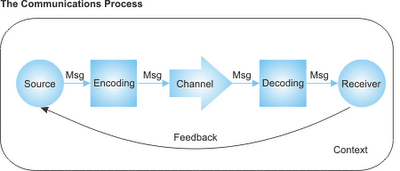“Studies on memory have shown that, without review, 47% of what a person has just learned is forgotten in the first twenty minutes and 62% is forgotten after the first day. Therefore, having good notes to review can determine how well you are able to perform on exams.”
1. Prepare for Class
- You need to have all the materials necessary for taking notes, i.e pens, pencils, highlighters, notebook etc. Teachers often make comments like, "This is an important concept." Or, "Make sure you understand this." These are direct clues that this will more than likely be on an exam. Highlighting these notes will help remind you later that this is definitely something you need to know.
- You may want to consider using a three-ring binder instead of a spiral or bound book. Pages can be easily removed for reviewing. Handouts can be inserted into your notes for cross-referencing. You can insert your own out-of-class notes in the correct order (Ellis).
- You must read assigned material and previous class notes before class. Make notations about material or concepts you don't understand. Look up vocabulary words that are unfamiliar to you. You will have a better understanding about what the instructor is lecturing about and that will allow you to better decipher the more important points of the lecture.
2. Sharpen your listening skills.
"Learn how to listen and you will prosper even from those who talk badly." -- Plutarch (A.D. 46 - 120). Greek biographer and philosopher
- Start by entering the classroom with a positive attitude. Going to class thinking, "This is the last place I want to be today" only sets the stage for internal noise. Approaching lectures with a positive attitude allows one to be open-minded and enables you to get the most out of the information presented.
- Make a conscious effort to pay attention. Concentrate on concentrating. "Without concentration there is no focus, and without focus there is no learning”.
- Adapt to whatever direction a lesson/lecture takes. When a lesson/lecture takes an unexpected detour, say a student asks a question you aren't particularly interested in, students have a tendency to "zone out." However the lesson/lecture may get back on track five minutes later and you would have missed crucial information that should have been noted.
3. Develop a notetaking strategy that works for you.
"Learn, compare, collect the facts." - Ivan Petrovic Pavlov (1849 - 1936), Russian physiologist.
In order to increase your notetaking speed and comprehension, fine-tune the structure and organization of your notes later.
- Start each new lesson/lecture on a new page, and date and number each page. The sequence of material is important.
- Write on one side of the paper only. You can set them out side-by-side for easier reviewing when studying for an exam.
- Leave blank spaces. This allows you to add comments or note questions later.
- Make your notes as brief as possible. "Never use a sentence when you can use a phrase, or a phrase when you can use a word" (Berkeley). For example, The food of the tainos, the caribs, the Axtecs, the Incas and the Mayas, we may say the food of the Amerindians.
- Develop a system of abbreviations and symbols you can use wherever possible. And=&, the=t ,
- Note all unfamiliar vocabulary or concepts you don't understand. This reminds you to look them up later.
- For examples of popular notetaking formats, see Notetaking Systems at http://www.sas.calpoly.edu/asc/ssl/notetaking.systems.html
4. Play close attention to content.
"There is a great difference between knowing a thing and understanding it." - Charles Kettering (1876 - 1958), American electrical engineer and inventor
Knowing what and how much to write down is sometimes difficult. Rely on some of the following tips for what to include in your notes.
- Details, facts, or explanations that expand or explain the main points that are mentioned. Don't forget examples.
- Definitions, word for word.
- Enumerations or lists of things that are discussed.
- Material written on the chalkboard or on a transparency, including drawings or charts.
- Information that is repeated or spelled out. (University of Texas at Austin)
5. Review and edit your notes.
"Ideas won't keep; something must be done about them." - Alfred North Whitehead (1861 - 1947), English mathematician and philosopher
Academic skills centers and other authorities on effective study skills consider reviewing and editing class notes to be the most important part of notetaking and essential to increasing learning capacity.
- It is extremely important to review your notes within 24 hours.
- Edit for words and phrases that are illegible or don't make sense. Write out abbreviated words that might be unclear later.
- Edit with a different colored pen to distinguish between what you wrote in class and what you filled in later.
- Fill in key words and questions in the left-hand column.
- Note anything you don't understand by underlining or highlighting to remind you to ask the instructor.
- Compare your notes with the textbook reading and fill in important details in the blank spaces you left.
- Consider rewriting or typing up your notes. (Ellis).


how can i get da syllabus to start ma I.A.???
ReplyDeleteYou can purchase a copy in any Sangsters or Kingston Book Shop Zzzz! Failing that, you may borrow a copy and photocopy the necessary information. Outside of the handout that you got about the portfolio it will give you additional information about the mark scheme.
ReplyDelete